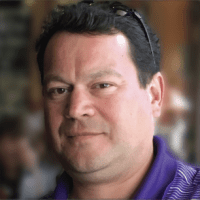Senior Manager, MedImmune
Washington DC
As the leader of the Core Flow Cytometry Facility, Chris promotes global harmonization of technical capabilities and operations management for Cytometry across the MedImmune R&D sites. His current goal is the establishment of an automated Shared Resource Laboratory by integrating Cytometry with Robotics, Automation, and Informatics to deliver novel process capability, improve data quality, accelerate decision making, and improve reproducibility of our research.
A: I always liked to take things apart to understand how they worked, and this characteristic has stayed with me.
A: I love to conduct experiments. These days, that’s largely through others. I love a challenge, and when researchers come to me with a problem that we can work together to solve. The constant challenge is to continue to evolve and adapt, and implement strategies that look out to the future of our capability… then the next challenge is to make it happen. Biggest burden is that is seems like I’m professionally making slides for presenting, but at least I’m getting better at doing this.
A: I see fit-for-purpose instruments being developed to meet scientific and technical hurdles that conventional technology can perform, but do so in a suboptimal manner. I see the needs to bring simple-to-use, but robust and sophisticated tools to the everyday researcher.
I certainly believe that microfluidic cell sorters have the potential to improve cell therapy development, cell manufacturing, and enable new techniques, such as single-cell profiling and sequencing. The WOLF has great potential, so please keep working to expand its capabilities and performance.
